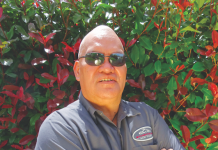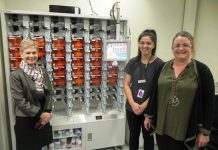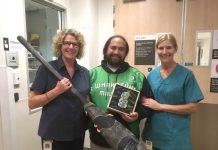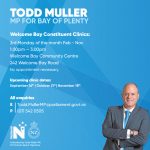Groundbreaking research underway in Tauranga could improve the quality of life for older men worldwide with a common condition.
Benign Prostatic Hyperplasia (BPH) is a urinary outflow obstruction suffered by many men as they age and a 24-month study in Tauranga is testing ways to relieve it.
“We’re conducting research into a new device – some of the first in the world and led from Tauranga,” said Bay of Plenty District Health Board Research Nurse Rachael Hamill. “We’re very excited about the possibilities as it could have very real benefits for men with this issue.”
The Zenflow spring system when implanted, helps relieve the growth pushing in on the urethra restricting the urinary flow. So far 30 stents have been implanted and another 40-50 patients will be involved in the Zest EU study altogether.
“Those who have had the implants have reported great improvement,” said Rachael. “It’s a 24-month study and at the end of that, they have the choice to have the stent removed or not depending on their experience with it.”
The study is a continuation of the innovative work at the Bay of Plenty Clinical Trials Unit, led by globally recognised urologist Professor Peter Gilling who is the Principal Investigator. The work is timely as, with an ageing population, it is predicted that there will be an ever-increasing prevalence of issues such as BPH.
“The goal is that we will be able to do this procedure here in the clinic, rather than have it be a hospital-based procedure,” said Professor Gilling. “That it would be under light sedation rather than anaesthetic.
“People with this issue will commonly see their GP and be put on medication, which may have side effects. Many want a non-invasive, non-surgical option and this is it. Medications can have side effects as can surgery, this does not. It staves off the need for surgery in the short-term, it replaces older stents such as the UroLift and TIND devices.”
Even if successful though, it will be a while before the procedure is more generally available.
“The study runs for two years and then there’s a further year to get FDA (Food and Drug Administration) approval in the United States,” said Professor Gilling. “So it will be late 2020 early 2021 before it is market ready. Then any urologist in the world could perform the procedure in their practise.
“It’s important for us, as we’re the first in the world to be trialling it. If it does prove successful over the long term, and we have no reason to believe it won’t, it will be groundbreaking.”










































































